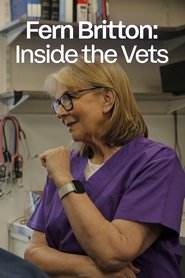Itv1 TV Series - Page 93
-
Family Pride
0000
Family Pride
0000
Family pride was a short lived 1990s British soap opera produced by Central Television which ran for two series in 1991 and 1992. It was written by Mahmood Jamal and Barry Simmer and centred around the lives of three Asian families living in Birmingham. It was produced by Zia Mohyeddin, directed by Henry Foster and Faris Kermani, and first appeared on screen on 30 June 1991. The series was shown in the Midlands region on ITV and nationally on Channel 4. Among the actors to have appeared in the series were Paul Henry, Rula Lenska and Zia Mohyeddin. -
The Odd Man
0000
The Odd Man
0000
The Odd Man was the first of a trilogy of police series produced in the 1960s by Granada TV, linked by the presence of pompous but increasingly genial police Chief Inspector Charles Rose. It originally dealt with the investigations of theatrical-agent-cum-detective Steve Gardiner, and his encounters with the police in the form of Chief Inspector Gordon and DS Swift. By the second season, Gordon had been replaced by Rose. The characters of Rose and Swift were then given their own series, It's Dark Outside, which ran for two seasons, with Barron being replaced in the second series by Anthony Ainley as DS Hunter. The third and final series in the trilogy, Mr Rose, saw Rose in retirement in Eastbourne, attempting to write his memoirs, but instead being drawn into private detection. The theme tune for this series was by John Snow, and issued on a single as a cover version by Roy Budd and the Tony Hatch Orchestra on the Pye Records label in 1967. A separate cover version was recorded on the album "Time For TV" by Brian -
Whizziwig
0000
Whizziwig
0000
Whizziwig was a science fiction children's programme broadcast on CITV between 1998 and 2000 based on the books by award winning children's author Malorie Blackman. -
ITV Evening News
0000
star 4.5The ITV News at 6:30 is the evening news bulletin on the British television network ITV. It is produced by ITN. The 30-minute programme, presented by Mary Nightingale and Alastair Stewart covers British national and international news stories and broadcasts at 6:30pm from Monday to Friday. In the event of a major news story, one of the programme's presenters will front the first ten to fifteen minutes of the programme from the scene of the story. The other newscaster will remain in the studio and read the day's other news. On Bank Holidays, the main evening bulletin usually airs at either 6:15pm to 6:45pm, running for 15 minutes. -
Love and Kisses
0000
Love and Kisses
0000
Love and Kisses was a black-and-white British sitcom that aired on ITV in 1955. It was written by Glenn Melvyn, who also starred in it. It was made for the ITV network by Associated-Rediffusion and was a spin-off series from the film The Love Match which was also written by and starred Glenn Melvyn. -
GMTV News
0000
GMTV News
0000
GMTV News was the brand name for the regional news service in the south coast of England and the Thames Valley, from 5 December 2006 until 6 February 2009. The change in branding was brought about due to the launch of ITV's Thames Valley news region on 4 December 2006, which, although based at Meridian's studios, consisted of the south-east of the Central franchise area as well as the north of the Meridian area. For this reason it was unlike the GMTV Northern Ireland and GMTV Scotland services, as it was produced by an ITV regional franchise-holder, rather than an independent company. As GMTV at the time only paid for one regional news service per official franchisee, the regional GMTV News-branded service was a replacement for the Meridian News and Thames Valley Today programmes. In February 2009, the two programmes were merged into one Meridian News/Tonight programme, and the GMTV News brand was dropped. -
...on Television
0000
...on Television
0000
"...on Television" or "...on TV", was a long-running late night television programme on ITV. The programme, which was made first by LWT and then Granada Productions, featured a number of clips from unusual or, amusing television programmes and commercials from around the world. The show was first presented by TV critic and journalist Clive James, then celebrity chef Keith Floyd in 1989, and finally Chris Tarrant from 1990 to 2006. The show remained "Tarrant on TV" for 16 years. -
Slap Bang with Ant & Dec
0000
Slap Bang with Ant & Dec was a television programme that was shown in the United Kingdom on ITV in 2001. It was presented by Ant & Dec. The show ran for 6 episodes. -
ITV News Channel TV
0000
ITV News Channel TV
0000
ITV News Channel TV is the flagship regional news service on ITV Channel Television, co-produced with the independent production company, Newsline. The news service is produced from the main studios of Channel Television in St. Helier, Jersey. Reporters and camera crews are also based at Channel's Guernsey studios in St Sampson's. Freelance correspondents, camera crews and videojournalists are based on Alderney and Sark. -
Fern Britton: Inside The Vets
0000
Follow the work of vets, the animal patients and their owners. Vet James Greenwood will take Fern though a range of treatments, including vaccinations, spays and dentistry, as well as surgery and critical care. -
999 Britain From Above
2019
As crime rises and budgets are slashed, police are taking to the air to keep one step ahead of the criminals. With first-time access to the National Police Air Service’s operation centre and state-of-the-art helicopters equipped with the latest technology, the programme joins this unique borderless network of police helicopters as they are dispatched to the country’s most critical incidents, from high-speed car chases to catching criminals in the dead of night. -
Wilmot
0000
-
Totally Senseless
0000
Totally Senseless
0000
Totally Senseless is an upcoming game show for ITV. The pilot episodes were hosted by Steve Jones and Brian Dowling with team captains Keith Duffy, Sinitta, Heidi Range, and Joe Swash. -
Vanessa
0000
Vanessa
0000
Vanessa was a British talk show presented by Vanessa Feltz. Vanessa Feltz was eventually sacked for asking for much money. Vanessa Feltz's show was replaced by Trisha Goddard. -
Country House Sunday
0000
Country House Sunday
0000
Country House Sunday is a British television series presented by Lynda Bellingham. The programme sees the actress and her team travel to some of Britain's largest and grandest stately homes. It is produced to Twofour. The show is currently airing on Sunday mornings on ITV at 8.25am. The first series began on 21 April 2013 and lasted for 21 episodes. -
Windfalls
0000
Windfalls
0000
Windfalls is a stop motion-animated children's television series created, written, and directed by Jenny Kenna. The Windfalls stories teach children about reading signs in nature, herbal medicine, and the plants of the British countryside. All of the animated characters are real leaves, grasses, and pressed flowers. The programme was animated by FilmFair. The stories follow three friends: Berry, Butterbur, and Rosebay. They are Windfalls, and they live in Windfall Land. They meet many other Windfalls on their adventures. The programme features a cast of 21 supporting characters, each designed from a different plant: Daisy, Evening Primrose, Pampas, Fern Polypody, Thistle, Cowslip, Delphinium, Uncle Onion, Cornflower, Lucky Four Leaf Clover, Vi, Ola, Pansy, Bella Donna, Twitch Grass, Couch Grass, Holly, Ivy, Nettle, Dock, and Daffodil. -
You Cannot Be Serious
0000
You Cannot Be Serious! is a British sports entertainment series on ITV. It began airing on 2 June 2012 and is hosted by impressionist and comedian Alistair McGowan. The show sees McGowan write new sketches and work on brand new impressions for TV for the first time in eight years. -
Saturday Cookbook
0000
Saturday Cookbook
0000
Saturday Cookbook is a British culinary series presented by Nadia Sawalha and Mark Sargeant. It is part of ITV Food. It aired on Saturday mornings on the ITV Network at 8.25am. Each week two special guests join Mark and Nadia. The programme aims to show viewers family recipes and reveal secret food-shopping habits and guilty culinary pleasures with guests. The first series consisted of 21 episodes. The first series is currently being repeated on Saturdays at 9:25am on ITV. A second series has not yet been announced. -
Garden Trail
0000
Garden Trail
0000
-
First Report
0000
First Report
0000
The First Report was the afternoon news programme on the British television network, ITV. It was produced by ITN.




